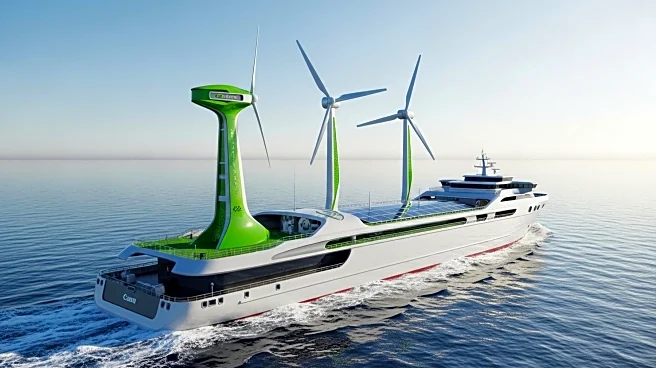What's Happening?
The International Maritime Organization (IMO) is set to adopt a Net-Zero Framework at its upcoming Green Summit, targeting significant reductions in greenhouse gas emissions from the global shipping industry. The framework includes mandatory emission limits and a greenhouse gas pricing mechanism, aiming for net-zero emissions by 2050. Interim targets include a 40% reduction in carbon intensity by 2030 and increased use of zero-emission fuels. Despite support from nearly 200 companies, the U.S. has opposed the framework, citing potential burdens on its shipping and consumer sectors.
Why It's Important?
The IMO's Net-Zero Framework represents a critical step in addressing the shipping industry's climate impact, which accounts for approximately 3% of global greenhouse gas emissions. The adoption of stringent climate regulations could drive innovation and investment in cleaner maritime technologies, benefiting companies that are early adopters of sustainable practices. However, the U.S. opposition highlights potential geopolitical tensions and economic challenges, as the framework may impose costs on shipping operations and consumer goods. The summit's outcome could set a precedent for international cooperation in climate policy.
What's Next?
The IMO Green Summit will focus on finalizing global fuel standards, enforcing a greenhouse gas levy, and revising the Carbon Intensity Indicator. The shipping industry faces a pivotal moment to demonstrate credible climate ambition while balancing fairness and practical constraints. The U.S. may consider retaliatory measures against states supporting the framework, potentially affecting international trade relations. The summit's decisions will likely influence future regulatory developments and industry practices, shaping the maritime sector's role in global decarbonization efforts.










